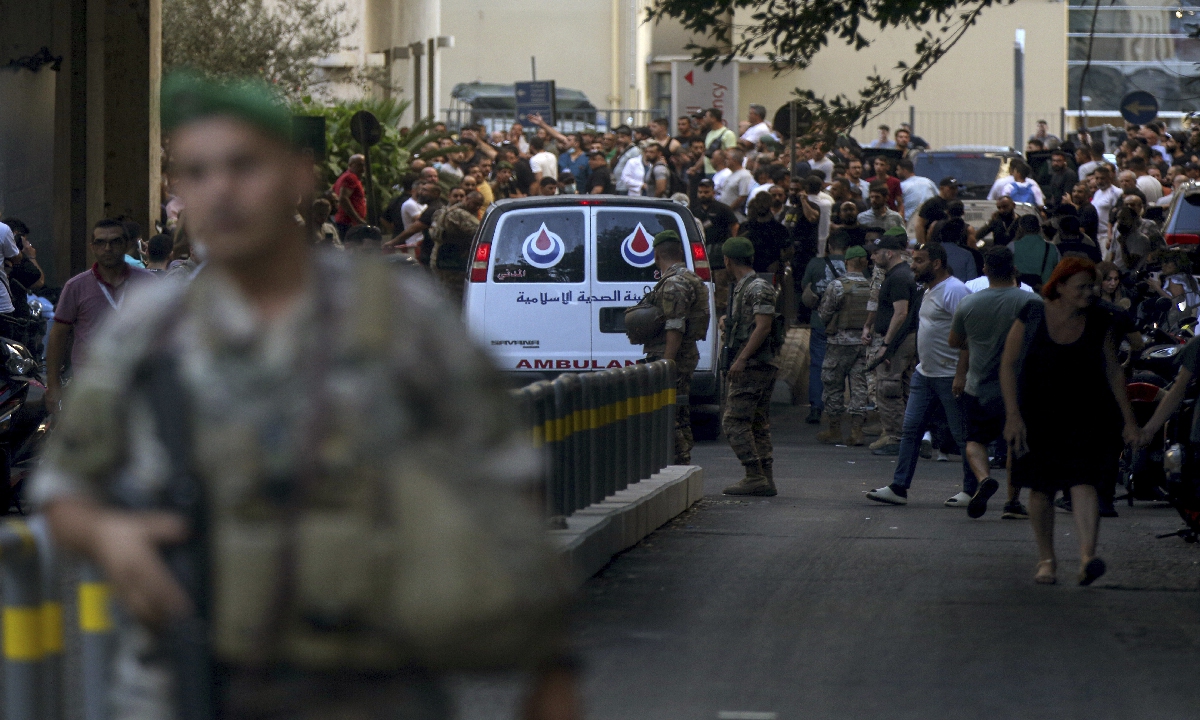
Lebanese army soldiers secure the area for an ambulance to enter the premises of the American University hospital in Beirut on September 17, 2024, after coordinated explosions of pagers across Lebanon the same day. At least 12 were killed as of press time. Photo: VCG
Hezbollah vowed to respond after pagers of its members exploded almost simultaneously on Tuesday, causing severe casualties. Media reports claimed that the operation was carried out by Israeli spy agency Mossad, prompting observers' concern over a further escalation of the crisis and more casualties in the Middle East.The death toll has reached 12 and 3,000 were wounded across Lebanon as of press time, according to Reuters on Wednesday.
More blasts of communication equipment happened on Wednesday in multiple Lebanese cities, media reported.
Reuters, citing sources, reported that Mossad planted "a small amount of explosives inside 5,000 Taiwan-made pagers ordered by Hezbollah months before Tuesday's detonations."
The wounded reportedly included Iran's envoy to Beirut.
Lebanese Information Minister Ziad Makary condemned the detonation of the pagers - handheld devices that Hezbollah and others in Lebanon use to send messages - as an "Israeli aggression." Hezbollah said Israel would receive "its fair punishment" for the blasts, Reuters reported.
Iran also condemned the incident which it believes to be Israel-backed, according to the Iranian foreign ministry.
CNN said it has learned the explosions were the result of a joint operation between Mossad and the Israeli military. The Israeli military declined to comment on the explosions.
The Lebanon source traced the pagers to Taiwan-based Gold Apollo, but the company said it did not manufacture the devices. B.A.C Consulting, a firm it described as having an address in Budapest, manufactured them under a license, The New York Times reported.
The explosive material, as little as one to two ounces, was implanted next to the battery in each pager. A switch was embedded that could be triggered remotely to detonate the explosives, per the NYT.
Wang Jin, an associate professor at the Institute of Middle Eastern Studies at Northwest University in Xi'an, told the Global Times on Wednesday that Hezbollah will retaliate because the militant group has suffered a great loss among its key members.
If Hezbollah's retaliation brings significant casualties to Israel, Israel would have the pretext to launch massive attacks on Hezbollah, leading to an escalation of the conflict, Wang said.


